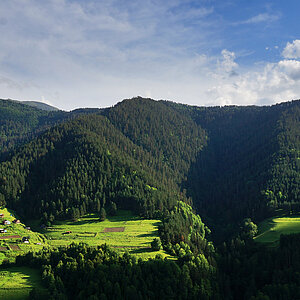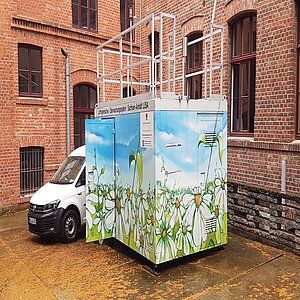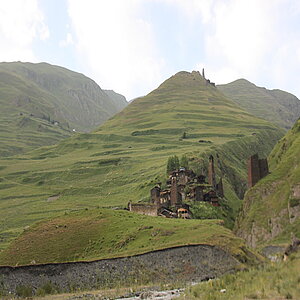First biosphere reserves recognised in Georgia

Support for the planning of the ‘Three Alazani Rivers’ biosphere reserve was provided by the IKI.
At the 34th session of the International Co-ordinating Council of the ‘Man and the Biosphere’ (MAB) Programme held in Paris in June, Dedoplistskaro and Three Alazani Rivers, both located in eastern Georgia, were officially recognised as biosphere reserves. These are now the first biosphere reserves in the country and the South Caucasus.
Alongside climate action, the protection and conservation of the planet’s biological diversity is one of the major challenges of our time. The effects of climate change are already being felt in the South Caucasus and Georgia: the average annual mean temperature has now fallen in western Georgia while rising in the eastern part of the country. At the same time, average annual precipitation has declined in Georgia’s mountainous regions.
Long-range forecasts made by scientists predict a further rise in the average annual mean temperature across the country, with heatwaves also becoming more prolonged. As susceptibility to negative developments resulting from climate change will be particularly high in the summer months and eastern Georgia, adaptation to climate change is therefore an important issue for the region.
While the Caucasus has a rich and varied biodiversity, many of the region’s species and ecosystems now have threatened status. Environmental challenges have arisen as a result of soil degradation, illegal logging and regional water scarcity, with desertification now recognised as a persistent threat in Georgia. The agricultural sector, which most rural populations in Georgia depend on for their livelihoods, is especially at risk from climate change, since both overgrazing and the degradation of agricultural land contribute to unsustainable development.
Nomination as a biosphere reserve
To support the Georgian government’s plans for the creation of a biosphere reserve, the International Climate Initiative (IKI) initiated a project titled ‘Developing capacities for climate policy in Southeast & Eastern Europe, South Caucasus and Central Asia’, which built on the in-depth and extensive preparatory work begun by the Michael Succow Foundation in 2015. The German Federal Ministry for the Environment (BMUV) had been funding a multi-year project to set up a biosphere reserve in Kakheti, while an EU-funded project was simultaneously drawing up plans for the creation of another biosphere reserve in Vashlovani. The two proposed biosphere reserves are close neighbours in geographic terms and connected by the centuries-old transhumance migration corridor.
Close regional cooperation
Close cooperation between the two projects facilitated the planning of future collaboration between the two biosphere reserves, especially in terms of the management of the migratory animal corridor. Aside from a network of protected areas, the two biosphere reserves in Kakheti and Vashlovani also encompass winter and summer pastures for the livestock herded between the two regions in the north and south on a seasonal basis. This transhumance (seasonal droving along migratory routes) is a centuries-old tradition in Kakheti, and has both influenced and shaped its unique landscape.
In early December 2020, a meeting to address the planned biosphere reserves in the Kakheti region took place between senior stakeholders at the behest of the Georgian Ministry of Environment Protection and Agriculture. Alongside representatives of the Georgian and German governments, this meeting was also attended by the implementing organisations, representatives of NGOs and the Georgian regions, and international experts on biosphere reserves. The high level of interest and motivation shown by participants underlined the importance of involving all stakeholders in the nomination procedure, so as to ensure the long-term success of the biosphere reserve as a local and regional resource.
With UNESCO’s recognition of the first two biosphere reserves in Georgia now complete, the way has now been prepared for an integrated approach that not only targets the conservation of species and cultural diversity but also the sustainability of economic, sociocultural and ecological development as well as adaptations to the impacts of climate change.
Background: model regions for sustainable development
All over the world, UNESCO biosphere reserves are model regions for sustainable development that enable the creation of practical approaches to biodiversity conservation and adaptation to the effects of climate change. The goal of integrated management pursued here promotes the regional incorporation of social, economic and ecological interests as well as cultural identity. As a result, biosphere reserves in Georgia can work to conserve species diversity and ecosystems as well as historical cultural landscapes. Today, the global network of UNESCO biosphere reserves extends over 738 reserves in 134 countries, with more than 250 million people living in biosphere reserves worldwide.
The link has been copied to the clipboard
Contact
IKI Office
Zukunft – Umwelt – Gesellschaft (ZUG) gGmbH
Stresemannstraße 69-71
10963 Berlin
Related Publications
-
 04/ 2024 | IKI Factsheet
04/ 2024 | IKI FactsheetPathways towards Decarbonization of the Transport Sector in Moldova
English (PDF, 499 KB)




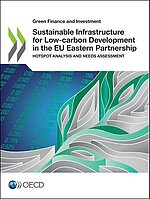
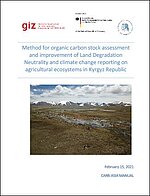
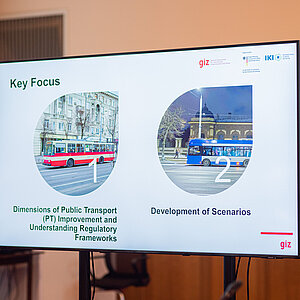
![[Translate to English:]](/fileadmin/_processed_/1/9/csm_20231120_eroeffnung_klimabuero_GIZ_Gate_Agency_443014c5e2.jpg)
